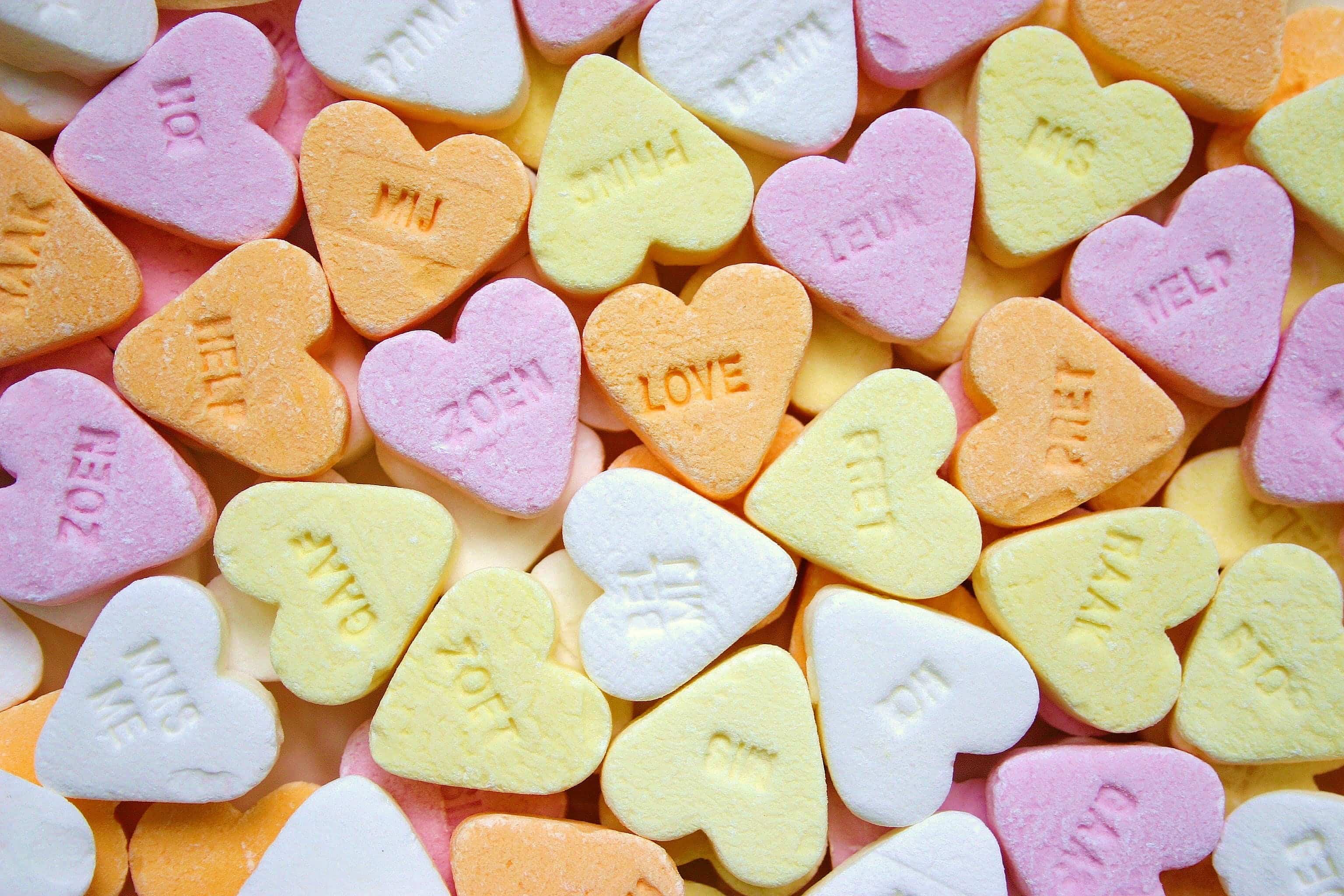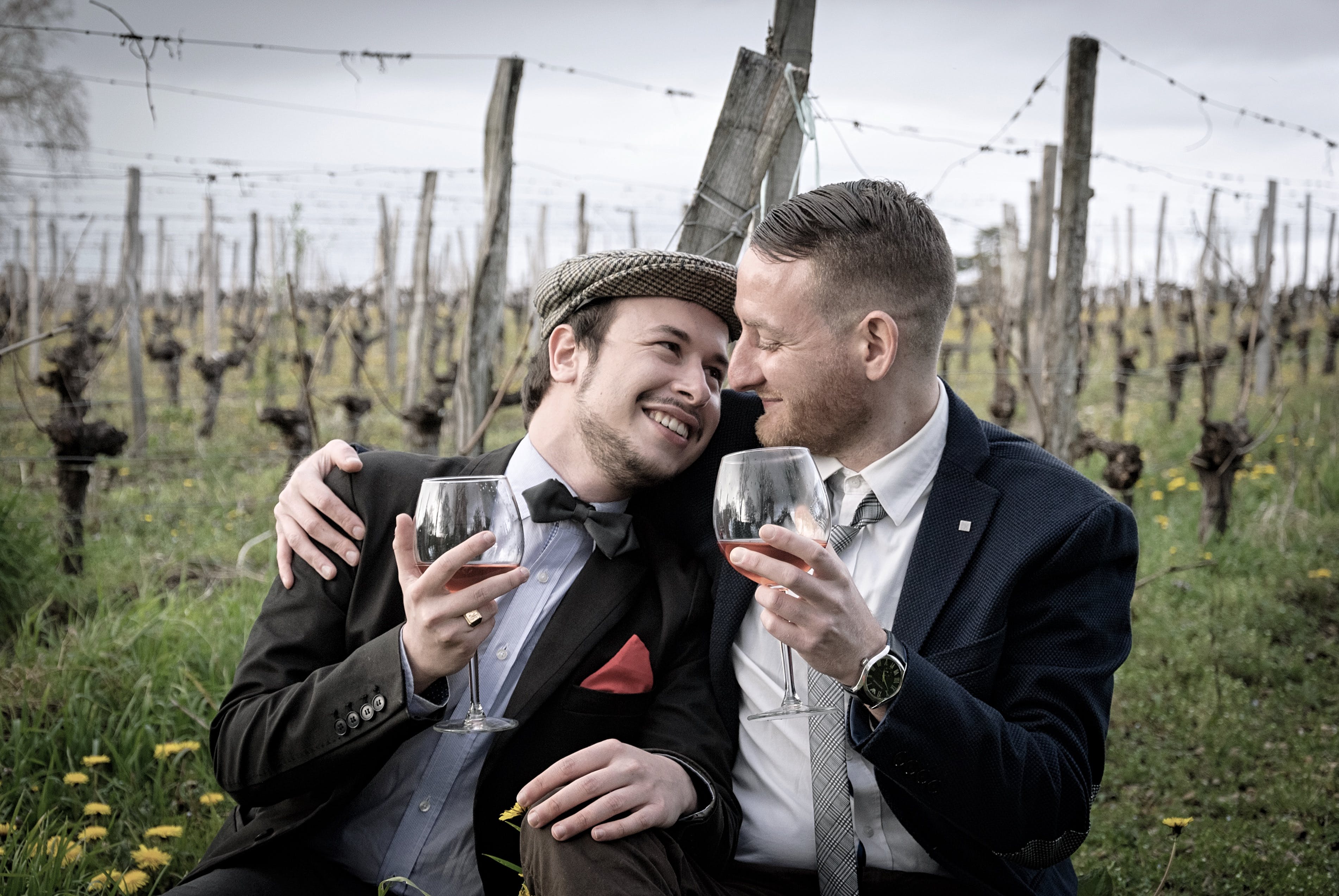
I Love You in English: 200+ Romantic Phrases to Creatively Express Your Love
If you love someone… tell them!
In this post you’ll find well over 200 ways to say “I love you” in English.
Learn how to express your love in any situation, from the cutest and most romantic ways to tell your significant other how you feel about them, to the best ways to tell your friends that you appreciate them.
We’ll also include romantic nicknames, some dreamy quotes about love from famous books and movies, the words to get flirty and more.
Read on to explore how to share your love with the world!
Contents
- Romantic Ways to Say “I Love You”
- Cute Ways to Say “I Love You”
- Flirty Love Expressions in English
- How to Ask Someone to Be Your Partner and Propose Marriage
- How to Tell Your Family and Friends “I Love You”
- How to Say “I Like You” in English
- How to Tell Someone You Miss Them
- Romantic Nicknames and Terms of Affection
- Love Quotes from Books and Movies
- How to Break Up with Someone
- How and Why Learn How to Say “I Love You” in English?
- And One More Thing...
Download: This blog post is available as a convenient and portable PDF that you can take anywhere. Click here to get a copy. (Download)
Romantic Ways to Say “I Love You”

You probably already know this basic phrase:
This is the most direct way of expressing your love for someone. You might also recognize this as a general expression that’s often used with family and friends, which is okay, too.
But English is a beautiful language and there are so many other romantic ways to say “I love you” beyond these three words.
Here are more ways to tell your significant other that you love them:
- I’m in love with you.
- I’m deeply in love with you.
- I’m madly in love with you.
- I’m crazy about you.
- You mean so much to me.
- I adore you.
- I can’t stop thinking about you.
- Not a moment goes by when I’m not thinking about you.
- You’re everything to me.
- You’re the light of my life.
- Every time I see you, my heart melts.
- You rock my world.
- You leave me breathless.
- I can’t live without you.
- I can’t imagine my life without you in it.
- You mean the world to me.
- I cherish you.
- You are my everything.
- You complete me.
- I’m head over heels for you.
- You are the love of my life.
- I can’t imagine my life without you.
- You are my soulmate.
- You make my heart skip a beat.
- I’m infatuated with you.
- You bring so much joy into my life.
- You’re the best thing that ever happened to me.
- You make me a better person.
- You are the light of my life.
- I’m completely smitten with you.
- I love you to the moon and back.
- You make my world brighter.
- I’m utterly devoted to you.
- You are my true love.
- I’m captivated by your love.
- You’re the reason I smile every day.
- I’m deeply attracted to you.
- You hold the key to my heart.
- You’re the only one for me.
- No one can take your place.
- Where have you been all my life?
- You’re the one I want to spend my life with.
Cute Ways to Say “I Love You”

If the mushy romantic stuff isn’t for you, you might prefer these adorable expressions, instead.
- You make my heart skip a beat.
- I’m bananas for you!
- You’re the cheese to my macaroni.
- You’re my sunshine on a rainy day.
- You’re the peanut butter to my jelly.
- You’re the cutest person I’ve ever met, inside and out.
- Loving you is like a warm hug for my soul.
- You’re the sprinkles on my ice cream cone.
- You’re the puzzle piece that completes me.
- You’re the reason I believe in magic and fairy tales.
- You’re the missing piece in the jigsaw puzzle of my heart.
- Luv ya!
- You make my heart do a happy dance.
- I love you more than a unicorn loves rainbows.
- You’re the cherry on top of my love sundae.
Flirty Love Expressions in English

When you’re not ready for declarations of love, but you want to show your interest in someone, it’s time to pull out some flirty phrases.
These phrases are great for situations where you’re trying to get closer to someone. And who knows, maybe someday you’ll be ready to say those three important little words.
For now, let’s get flirty!
- I’d like to get to know you better.
- I have a crush on you.
- I think you’re cute.
- You’re looking stunning today.
- You have the most beautiful eyes.
- I get butterflies in my stomach when I’m around you.
- I can’t resist your charm.
- You’re the highlight of my day.
- I’m drawn to your magnetic personality.
- Spending time with you is always a pleasure.
- You have an incredible sense of style.
- You’re the definition of irresistible.
- I can’t get you out of my mind.
- You have an amazing smile.
- Every moment with you feels magical.
- I find myself thinking about you all the time.
- You make my heart race.
- I’m falling for you.
- I’m attracted to you.
How to Ask Someone to Be Your Partner and Propose Marriage

At some point, the flirtation leads to you or your partner wanting a serious relationship. When that day comes, you can use these phrases to ask:
- I’ve enjoyed our time together, and I would love for you to be my wife / husband.
- I’ve been thinking about us a lot, and I would be honored if you would be my significant other.
- I cherish our connection, and I can’t imagine my life without you. Will you marry me?
- I feel a deep connection with you, and I would like us to take our relationship to the next level. Will you be my partner?
- I’ve been wanting to ask you something important. Will you be my partner and share your life with me?
- You mean a lot to me, and I want you to know that I would be thrilled if you would be my husband / wife.
- I’ve been thinking about the future, and I would love for you to be a part of it as my partner.
- I value our connection, and I can see a beautiful future together. Will you be my girlfriend / boyfriend?
- You bring so much joy into my life, and I would love for you to be my partner in all that lies ahead.
- I’ve found something special in you, and I want to build a future together. Will you marry me?
- I’ve been waiting for the right moment to ask – will you be my partner and share your life with me?
- I care about you deeply, and I would be honored if you would be my partner in this journey of life.
- I’ve been thinking about us a lot, and I believe we make a great team. Will you be my significant other?
- I want to be more than just friends. Will you be my partner and share your heart with me?
- I’ve been envisioning a future with you, and I would love for you to be my partner in making those dreams come true.
How to Tell Your Family and Friends “I Love You”

You don’t have to be in love with someone to love them. We love our friends and family, too, but you wouldn’t want to use a romantic phrase to avoid an awkward family reunion!
Instead, use these phrases to tell your loved ones that you love them… in a friendly, platonic (non-romantic) way.
- I value our friendship so much.
- You’re an amazing friend.
- I appreciate you more than words can express.
- You make my life brighter.
- I’m grateful to have you in my life.
- You’re like family to me.
- I cherish our friendship.
- You’re always there for me, and I’m so thankful.
- I love how we can be ourselves around each other.
- You bring so much joy and laughter to my life.
- You’re an incredible person and friend.
- I’m lucky to have you as my friend.
- You make every day better.
- I admire and respect you so much.
- You’ve been there for me through thick and thin.
- I love the memories we’ve created together.
- You understand me like no one else.
- I’m grateful for your support and encouragement.
- You’re like a ray of sunshine in my life.
- I appreciate the little things you do that show you care.
- You’re a true friend, and I value our bond.
- I love how we can share both laughter and tears.
- You make the world a better place just by being in it.
- I’m thankful for the laughter and fun we share.
- You’re an incredible source of strength for me.
- I love how we can pick up right where we left off, no matter how much time has passed.
- I’m grateful for the countless memories we’ve made together.
- You’ve made such a positive impact on my life.
- I love you, my dear friend.
How to Say “I Like You” in English

Telling someone that you like them is a step toward love. It might seem easier but it can be just as difficult to say!
Here are some sweet expressions to tell someone that you really enjoy their company. These phrases might be a stepping stone toward more serious love, or they can even be shared between friends.
- I like you.
- I’m fond of you.
- You’re really cool.
- I enjoy your company.
- You’re fun to be around.
- I think you’re great.
- You’re someone I admire.
- I’m into you.
- I have a soft spot for you.
- You’re really charming.
- You’re awesome.
- I find you captivating.
- I appreciate you.
- You make me smile.
- You’re a breath of fresh air.
- I’m drawn to you.
- You’re someone special to me.
- I think you’re amazing.
- I enjoy your presence.
- I’m quite taken with you.
- I think you’re fantastic.
How to Tell Someone You Miss Them

Have you ever loved someone so much that being away from them almost hurt? These expressions are for those moments when you wish you could be closer to your loved one.
- I miss you.
- I miss you so much.
- I can’t stop thinking about you.
- Every day without you feels empty.
- I long for your presence.
- You’re always on my mind.
- Distance makes the heart grow fonder.
- My days are incomplete without you.
- Being apart from you is tough.
- I wish you were here with me.
- The moments we shared are etched in my heart.
- You’re the missing piece in my life right now.
- Every song I hear reminds me of you.
- The distance feels unbearable.
- You’re the one I want by my side.
- Thinking about our memories together brings tears to my eyes.
- My heart aches for your presence.
- The days feel longer without you.
- Being away from you reminds me of how much you mean to me.
- No matter the distance, my love for you remains strong.
- Every moment spent apart only intensifies my longing for you.
Romantic Nicknames and Terms of Affection

When you’re in love with your partner, sometimes their name just isn’t enough to express your love. So you have to invent romantic nicknames to call them. Here are some of the most common in English:
Love Quotes from Books and Movies

Love is a universal topic that exists in every generation and age. Of course, that means you can find meaningful quotes about love in many different forms of art.
Here are our favorite beautiful quotes about love from books:
- “Love is like the wind, you can’t see it but you can feel it.” — “A Walk to Remember” by Nicholas Sparks
- “You don’t love someone for their looks, or their clothes, or for their fancy car, but because they sing a song only you can hear.” — “The Picture of Dorian Gray” by Oscar Wilde
- “Love, free as air at sight of human ties, spreads his light wings, and in a moment flies.” — “Paradise Lost” by John Milton
- “The only way to get rid of a temptation is to yield to it.” — “The Picture of Dorian Gray” by Oscar Wilde
- “Love is a smoke made with the fume of sighs.” — “Romeo and Juliet” by William Shakespeare
- “Love is an irresistible desire to be irresistibly desired.” — “The Great Gatsby” by F. Scott Fitzgerald
- “Love is a verb. Love—the feeling—is the fruit of love the verb or our loving actions.” — “The Four Loves” by C.S. Lewis
- “Love is an endless act of forgiveness.” — “The Bridges of Madison County” by Robert James Waller
- “Love looks not with the eyes, but with the mind, and therefore is winged Cupid painted blind.” — “A Midsummer Night’s Dream” by William Shakespeare
- “Love is a better teacher than duty.” — “The Life and Adventures of Nicholas Nickleby” by Charles Dickens
- “Love is a game that two can play and both win.” — “Eva Luna” by Isabel Allende
- “Love is a haunting melody that I have never mastered, and I fear I never will.” — “Love in the Time of Cholera” by Gabriel Garcia Marquez
- “Love is a friendship set to music.” — “Ella Enchanted” by Gail Carson Levine
- “Love is composed of a single soul inhabiting two bodies.” — “Symposium” by Plato
- “The greatest happiness of life is the conviction that we are loved; loved for ourselves, or rather, loved in spite of ourselves.” — “Les Misérables” by Victor Hugo
- “Love is not love which alters when it alteration finds.” – Sonnet 116 by William Shakespeare
- “Love is like the sea. It’s a moving thing, but still and all, it takes its shape from the shore it meets, and it’s different with every shore.” — “The Mirror Crack’d from Side to Side” by Agatha Christie
And here are some from movies:
- “I’m also just a girl, standing in front of a boy, asking him to love her.” — “Notting Hill” (1999)
- “Love means never having to say you’re sorry.” — “Love Story” (1970)
- “You had me at hello.” — “Jerry Maguire” (1996)
- “To me, you are perfect.” — “Love Actually” (2003)
- “Winning that ticket, Rose, was the best thing that ever happened to me… It brought me to you.” — “Titanic” (1997)
- “I love you. I knew it the minute I met you. I’m sorry it took so long for me to catch up. I just got stuck.” — “Silver Linings Playbook” (2012)
- “The greatest thing you’ll ever learn is just to love and be loved in return.” — “Moulin Rouge!” (2001)
- “I wish I knew how to quit you.” — “Brokeback Mountain” (2005)
- “Love is putting someone else’s needs before yours.” — “Frozen” (2013)
- “You don’t love someone because of their looks or their clothes or their car, but because they sing a song only you can hear.” — “La La Land” (2016)
- “I came here tonight because when you realize you want to spend the rest of your life with somebody, you want the rest of your life to start as soon as possible.” — “When Harry Met Sally…” (1989)
- “You make me want to be a better man.” — “As Good as It Gets” (1997)
- “I’m just a girl, standing in front of a boy, asking him to love her.” — “Notting Hill” (1999)
- “Love is like the wind, you can’t see it but you can feel it.” — “A Walk to Remember” (2002)
- “I love that you get cold when it’s 71 degrees out. I love that it takes you an hour and a half to order a sandwich. I love that you get a little crinkle above your nose when you’re looking at me like I’m nuts. I love that after I spend the day with you, I can still smell your perfume on my clothes.” — “The Wedding Singer” (1998)
- “Love is passion, obsession, someone you can’t live without. If you don’t start with that, what are you going to end up with?” — “Meet Joe Black” (1998)
- “But the heart’s not like a box that gets filled up. It expands in size the more you love.” — “Her” (2013)
- “I came here tonight because when you realize you want to spend the rest of your life with somebody, you want the rest of your life to start as soon as possible.” — “When Harry Met Sally…” (1989)
How to Break Up with Someone

Let’s face it. Sometimes love and relationships don’t last. When that happens to you, here are some easy ways to end it:
- I think we need to talk about our relationship.
- I’ve been doing a lot of thinking, and I believe it’s best for both of us to part ways.
- Our paths seem to be going in different directions, and it’s time for us to go our separate ways.
- I’ve come to the difficult decision that we should break up.
- I need some space to focus on myself and my personal growth.
- I feel like our relationship is not fulfilling for either of us anymore.
- It’s not easy for me to say this, but I think it’s time for us to end our relationship.
- I don’t see a future for us together, and it’s only fair to be honest about it.
- I’ve realized that we have different priorities and values that make it challenging for us to continue as a couple.
- We’ve been through a lot together, but I think it’s time for a fresh start for both of us.
- I believe ending our relationship is the right decision for both of us to find happiness.
- I value the time we’ve spent together, but I think we need to move on separately.
- I’ve been struggling with this decision, but I don’t see a way for our relationship to continue.
- It’s important for us to be honest with ourselves and acknowledge that we’re not thriving in this relationship.
- I care about you deeply, but I believe it’s time for us to end our romantic connection.
How and Why Learn How to Say “I Love You” in English?
As you saw in the last section, English is a language rich with sayings, quotes, books, songs and movies about love and romance. If you want to understand the many romantic references you come across, you’ll need to expand your vocabulary.
As you well know, love itself is a universal language spoken everywhere in the world. This means you simply can’t learn the English language without learning how to say “I love you.”
Of course, if you keep using only these three words to express your love, it could get boring very quickly. The good news is that there are lots of creative and indirect ways to express love.
The video below shows you scenes from different romantic movies to illustrate the many, many different ways of saying “I love you.”
Be sure to look out for more expressions like these in the books you’re reading, the songs you’re listening to or the movies you’re watching.
Another way of hearing these words in action is by using a language learning program such as FluentU.
FluentU takes authentic videos—like music videos, movie trailers, news and inspiring talks—and turns them into personalized language learning lessons.
You can try FluentU for free for 2 weeks. Check out the website or download the iOS app or Android app.
P.S. Click here to take advantage of our current sale! (Expires at the end of this month.)

The different ways to say the same thing make English a challenging yet exciting language to learn, and knowing them makes you sound more fluent.
You’re ready to go out there and tell your loved ones how you feel! Take your pick from over 180 sweet ways to say “I love you” in English and you’ll be all set to share your love in any form that it takes.
Download: This blog post is available as a convenient and portable PDF that you can take anywhere. Click here to get a copy. (Download)
And One More Thing...
If you like learning English through movies and online media, you should also check out FluentU. FluentU lets you learn English from popular talk shows, catchy music videos and funny commercials, as you can see here:
The FluentU app and website makes it really easy to watch English videos. There are captions that are interactive. That means you can tap on any word to see an image, definition, and useful examples.
For example, when you tap on the word "searching," you see this:
Learn all the vocabulary in any video with quizzes. Swipe left or right to see more examples for the word you’re learning.

FluentU helps you learn fast with useful questions and multiple examples. Learn more.
The best part? FluentU remembers the vocabulary that you’re learning. It gives you extra practice with difficult words—and reminds you when it’s time to review what you’ve learned. You have a truly personalized experience.
Start using the FluentU website on your computer or tablet or, better yet, download the FluentU app from the iTunes or Google Play store. Click here to take advantage of our current sale! (Expires at the end of this month.)





